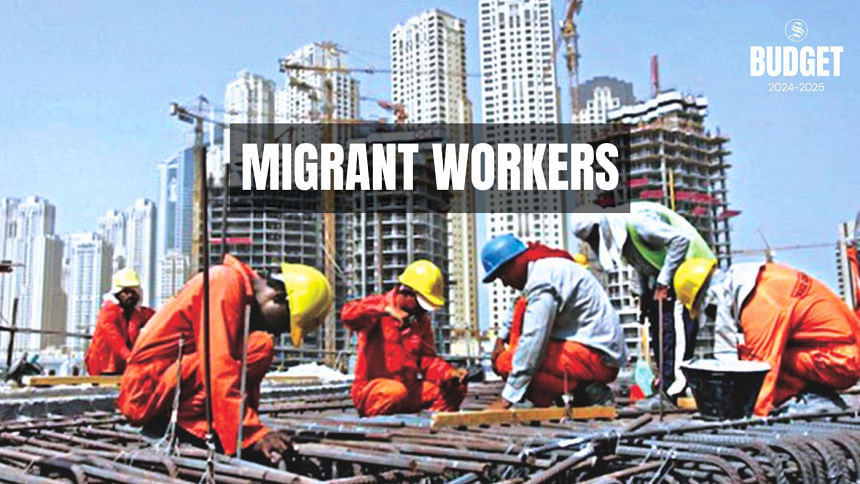Expatriate workers left in the lurch

The proposed budget for FY 2024-2025, presented in the parliament today, failed to address the continuous sufferings of expatriate workers.
Expatriate workers had hoped this budget would provide some relief by introducing new programmes, including schemes and various incentives to address their woes.
However, instead of doing so, the government prioritised initiating skills development programmes like learning foreign languages and setting up more training centres for migrant workers.
Shariful Hasan, associate director of BRAC's Migration and Youth Initiatives Programme, said migrant workers are experiencing multi-faceted sufferings that should be addressed in the budget.
He said it is ironic that no ray of hope was announced in the budget for expatriate workers.
"The government, this time, too failed to address the woes of the migrant workers. There was a need for special allocations like those of the Department of Social Services, as well as different schemes and incentives for the migrant workers to address their issues. But this was not reflected in the budget," he said.
He further mentioned that even the limited facilities provided through the Wage Earners' Welfare Board come from the money contributed by the workers themselves.
The expatriate workers had hoped that the at least remittance incentives would be increased this time, but it has remained at 2.5 percent.
They said increasing the incentives would encourage them to send remittances through legal channels, as the Hundi system offers more than what the government pays against every dollar.
Since the fiscal year 2019-20, the government has been offering a 2 percent incentive to encourage legal remittance transfers by preventing Hundi transactions.
In 2022, this incentive was increased to 2.5 percent. With the incentives, if an expatriate sends Tk 100 to the country, their family receives Tk 102.5. The extra money is provided by the government as a subsidy.
While announcing the budget today, Finance Minister Abul Hassan Mahmood Ali proposed an allocation of Tk 1,217 crore, seeking Tk 456 crore for operating expenditure and Tk 760 crore for development expenditure for the Ministry of Expatriates' Welfare and Overseas Employment in the proposed budget.
This is an increase of Tk 199 crore compared to last year's Tk 1,018 crore. The allocation is 0.15 percent of the total budget and 0.022 percent of the national GDP.

 For all latest news, follow The Daily Star's Google News channel.
For all latest news, follow The Daily Star's Google News channel. 



Comments